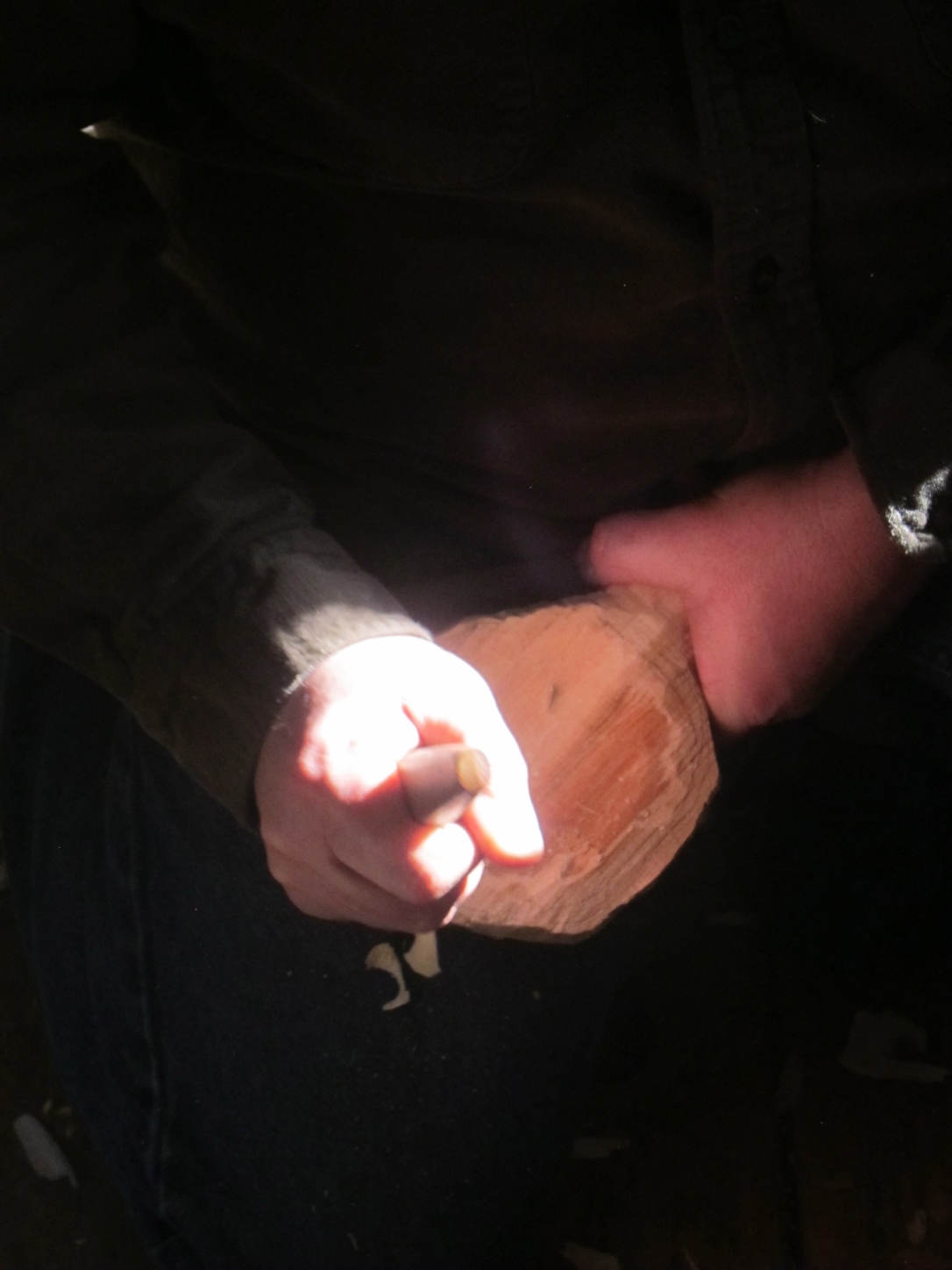
It’s nice that it’s a little warmer now. I dally over chores, stopping at each species to stand watch for a minute or two. I like watching the ducks drink after I chop through the ice in their watering hole. I like watching over the evolving relationship between Web, our pet duck who chooses barn life over communion with her kind, and Rye’s goats, Flora and Monkey. We moved Flora and Monkey from their usual winter shelter because the deep snow had made their fence superfluous, and they’d become prone to wandering.
Their relationship with Web did not get off on a good foot (hoof?): There were head-to-head standoffs between the duck and Monkey, and I’d have been worried if I didn’t know how fast that bird can move when it suits her. But at some point in the week after being introduced, the three made their peace, and now Web is forever preening her former adversaries, perhaps having decided that antagonism was getting her nowhere, and she might just as well annihilate them with kindness. The goats lean into her while she works her way up and down their backs with her bill. The goats are shedding in the changing season; the preening must feel good.
We’ve lived with animals long enough now that it’s hard to imagine a time we didn’t live with animals. I understand why most people don’t want to live with animals (I’m not talking about house pets, which for the most part are so adapted to the human environment that they demand relatively little of us); the commitment is not inconsequential. There’s no question that our lives are defined by our relationships to our animals, both in regards to our day-to-day comings and going, but also in how we perceive the world around us, and even how we perceive ourselves.
I thought about this yesterday, after reading Charles’ recent account of his encounter with a toddler. The piece spoke to me, in no small part because I understand full well what he means about grappling with criticisms both external and, most affecting to me, internal. I suspect this is a common phenomenon among writers or anyone else whose work exists in the public realm. Or maybe it’s straight up common to humanity. I also agree with Charles that part of the value of my work – it’s value to me, at least – is that I sometimes question its value. It is important, that questioning, the same way it’s important to occasionally question just about everything we think we know or believe. I have learned that the people most deserving of my trust and respect are not those who claim to have the answers, or who claim to know what answers I should have, but rather those who leave room in their hearts and minds for the possibility that the stories they cling to might not be as important as they believe.
Our animals do for me what the baby in Charles’ essay did for him: They remind me, on a daily basis, that my written work is merely one aspect of who I am, it is merely one medium for expressing what I think is important to me. And on those days when it feels as if I accomplish nothing else, they provide me the opportunity to know that at least I accomplished this: I fed them. I watered them. I tended to their needs. I stood for a moment and watched a duck preening a goat, something that only a few weeks ago would have seemed an unfathomable kindness between two arch enemies. I watched one cow stretch her rough tongue to scratch the hard-to-reach itch of another, and I wondered how this need is communicated. I stood over the pigs sleeping in their hay, their soft bellies rising and falling with each porcine breath, and I challenged myself to fill their trough without waking them.
I think these interactions – both between myself and our animals, and between our animals themselves – are worth more than any casual observer might understand. Perhaps worth more than even I might understand. Maybe because, as Charles posits, they are in some manner redemptive, almost an atonement for the myriad ways in which I fall short.
Or maybe they are worth so much for an entirely different reason: They are something that no amount of criticism, either external or internal, can sully. There is no viewpoint expressed, no belief espoused, no argument made, no position defended, no status to be attained or denied, and therefore, no ego to be inflated or deflated. There is not even a verbal acknowledgement of appreciation.
There is merely one creature meeting the needs of another, and the minutia of the interactions necessary to the task, so fleeting and routine that it’s easy to lose sight of their value. This is particularly true in a culture that does not acknowledge or even understand this value. For what is gained? I cannot show you. I struggle to even tell you. But I know it is real nonetheless.

